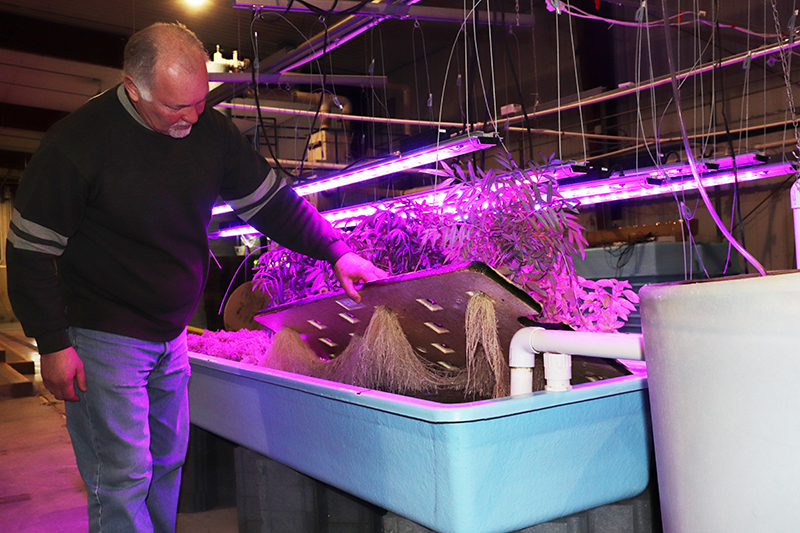Lethbridge College researchers are looking to make a splash in the sustainable food production industry.
For the past five years, the college’s Aquaponics program has been making advancements in the world of applied research. It’s studying ways of increasing plant growth using nothing but forest waste and fish nutrients.
“So developing a system which will allow us to produce food using less resources and producing less waste is very critical for survival on this planet,” said Nick Savidov, senior research scientist at Lethbridge College.
Savidov believes it’s important to discover a way to find low resource food production systems. He said the main purpose of the research is to produce new agricultural systems to allow production of food using the least amount of resources possible.
The key component of Savidov’s research is known as biochar which is a charcoal-like substance that’s made by burning forest waste in a controlled process known as pyrolysis.
Along with the use of biochar, the research team has also been testing the growth of plants when given a solution made from fish solid waste.
Fish solid waste is put through a highly researched treatment process that uses pure oxygen and movement to remove all bad bacteria and ammonia from the waste to create a nitrogen-based growth solution.
“Our research projects offer opportunities for me to bring my students here and show them current on-going new knowledge and where the industry is going,” said John Derksen, researcher and Chair of Aquaculture.
The aquaponics team is currently in its fifth and final year of research, but said they would like to continue their work on a larger scale. The team is said to start large-scale production in the 2020 academic year when the college finishes the new 10,000 square foot greenhouse.
The team is said to start large scale research in the 2020 academic year when the college finishes the new 10,000 sq. ft. greenhouse.



